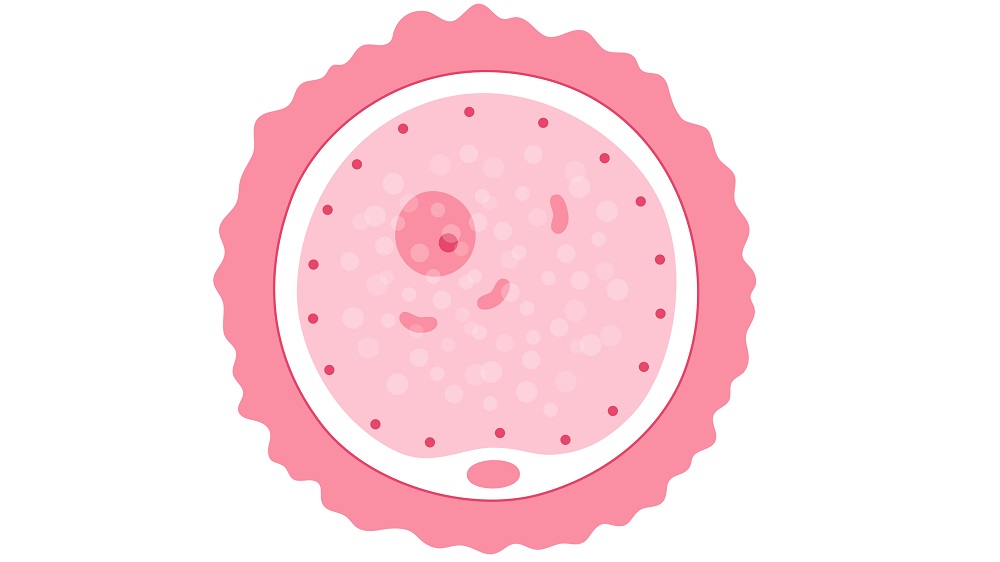Decreasing Autophagy Might Reverse Ovarian Aging
- Autophagy is normally good for longevity, but not in this case.

Experimenting in vitro and in mice, scientists have found that ovarian aging is linked to increased autophagy and apoptosis in granulosa cells and that it can be reversed by an estrogen receptor inhibitor [1].
When ovaries get tired
Female reproductive aging is an intriguing phenomenon that remains understudied, although things have been changing recently. In the female body, this is the first system to give out due to aging, decades before the others. Menopause is largely non-existent in the animal kingdom, apart from a handful of species, and its evolutionary origins remain unclear.
In this new paper published in Aging and Disease, the researchers investigated the phenomenon of diminished ovarian reserves (DOR), a decrease in the number and/or quality of egg cells (oocytes), which reduces fertility and increases the risk of adverse pregnancy outcomes. With age, DOR becomes the leading cause of infertility, found in up to 64% of cases.
A “longevity protein” is to blame
Oocytes are ‘nurtured’ by the surrounding granulosa cells (GC), and many factors of poor oocyte growth are thought to originate in those cells. The researchers found that in women with DOR, GCs showed signs of increased autophagy, a process that disposes of accumulated intracellular junk. Autophagy usually decreases with age, and this is something that geroscientists are working on, but apparently, there can be too much autophagy. Recent studies have implicated increased autophagy in GCs dying by apoptosis [2].
Autophagy markers in GCs are correlated with the level of estrogen receptor beta (ERβ). Estrogen sensing is important for oocyte development, but ERβ has also been linked to increased autophagy and apoptosis in some cell types.
The researchers then experimented with ERβ expression in GCs. ERβ knockdown led to a decrease in the expression of several autophagy genes, and vice versa. Electron microscopy then revealed that this coincided with higher or lower counts of autophagy-facilitating organelles (autophagosomes).
Previous research has suggested that ERβ affects autophagy via another protein called FOXO3a, a member of the FOXO family that has been touted as longevity-promoting. FOXO3a acts as a tumor suppressor [3] and is often inactivated by oncogenic mutations. In fact, ERβ was found to upregulate FOXO3a in prostate cancer, probably as a defense mechanism [4]. The researchers found a potential binding site for ERβ on the FOXO3a promoter and determined that FOXO3a depletion abrogated ERβ’s effect on autophagy.
Silencing ERβ improved GC function and proliferation, while overexpressing it had the opposite effect, increasing apoptosis. Rapamycin, a potent autophagy inducer, reversed the effects of ERβ silencing.
DOR reversal in vivo
To see if ovarian aging can be reversed by tinkering with ERβ, the researchers created a mouse model of DOR. As expected, these mice had significantly elevated levels of ERβ. The mice were then treated with an ERβ antagonist for 14 days. The treatment partially restored the estrous cycle (the analog to the menstrual cycle, observed in most mammals) and significantly alleviated DOR-related ovarian damage, including low follicle count. The mature/immature oocytes ratio in the treated DOR mice was higher than in non-treated animals and on par with healthy controls.
The treatment markedly restored the mice’s fertility. The treated animals had lower levels of reactive oxygen species (ROS) in oocytes, improved oocyte morphology, higher embryo formation rate following IVF, and, ultimately, bigger litters. The treatment inhibited the increase in autophagy and apoptosis that was observed in the DOR mice.
This intriguing study suggests that increased autophagy has a dark side when it comes to ovarian health. While the researchers list several limitations to their study, such as the possibly less-than-perfect quality of the DOR model that they had used, they hypothesize that this mechanism of DOR development is relevant to humans. If it is confirmed by further studies, this could be the breakthrough that the field of human reproductive aging has been waiting for.
Here, we elucidated the molecular mechanism by which ERβ induces ovarian GC apoptosis through the FOXO3a/autophagy pathway and confirmed the protective effect of the ERβ antagonist PHTPP on ovarian reserve and fertility in vivo. These results suggest that PHTPP may be a promising medication for treating DOR in a clinical setting. In the future, an ovary-specific ERβ gene knockout mouse model needs to be constructed to obtain more direct and reliable evidence.
Literature
[1] Li, F., Zhu, J., Liu, J., Hu, Y., Wu, P., Zeng, C., … & Xue, Q. (2024). Targeting Estrogen Receptor Beta Ameliorates Diminished Ovarian Reserve via Suppression of the FOXO3a/Autophagy Pathway. Aging and Disease.
[2] Choi, J., Jo, M., Lee, E., & Choi, D. (2011). Induction of apoptotic cell death via accumulation of autophagosomes in rat granulosa cells. Fertility and sterility, 95(4), 1482-1486.
[3] Liu, Y., Ao, X., Ding, W., Ponnusamy, M., Wu, W., Hao, X., … & Wang, J. (2018). Critical role of FOXO3a in carcinogenesis. Molecular cancer, 17(1), 1-12.
[4] Dey, P., Ström, A., & Gustafsson, J. Å. (2014). Estrogen receptor β upregulates FOXO3a and causes induction of apoptosis through PUMA in prostate cancer. Oncogene, 33(33), 4213-4225.







